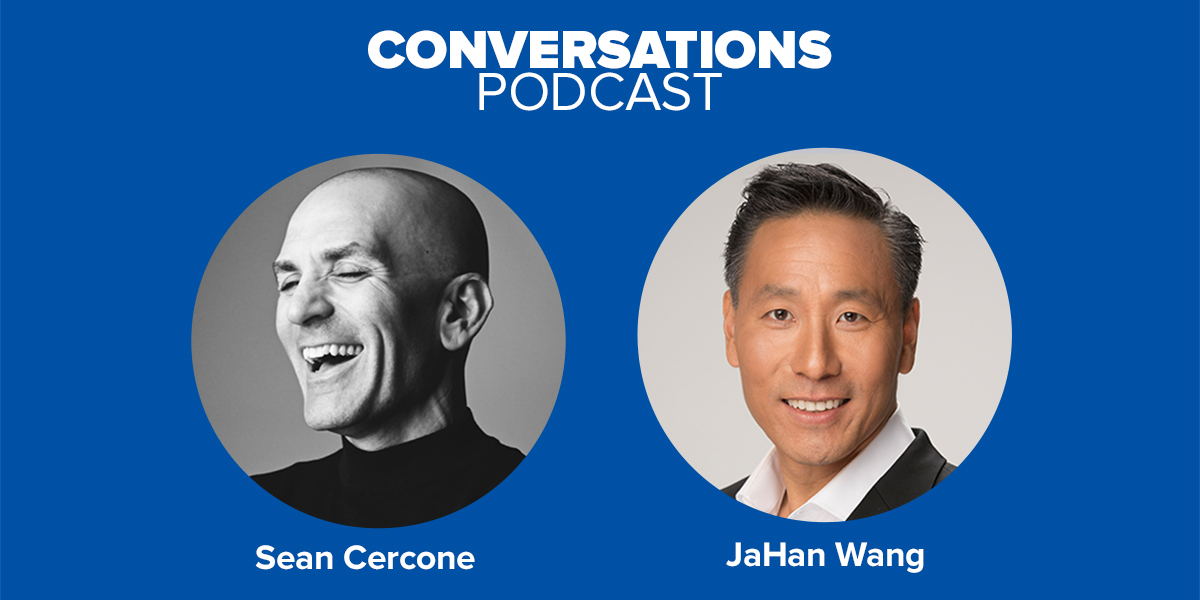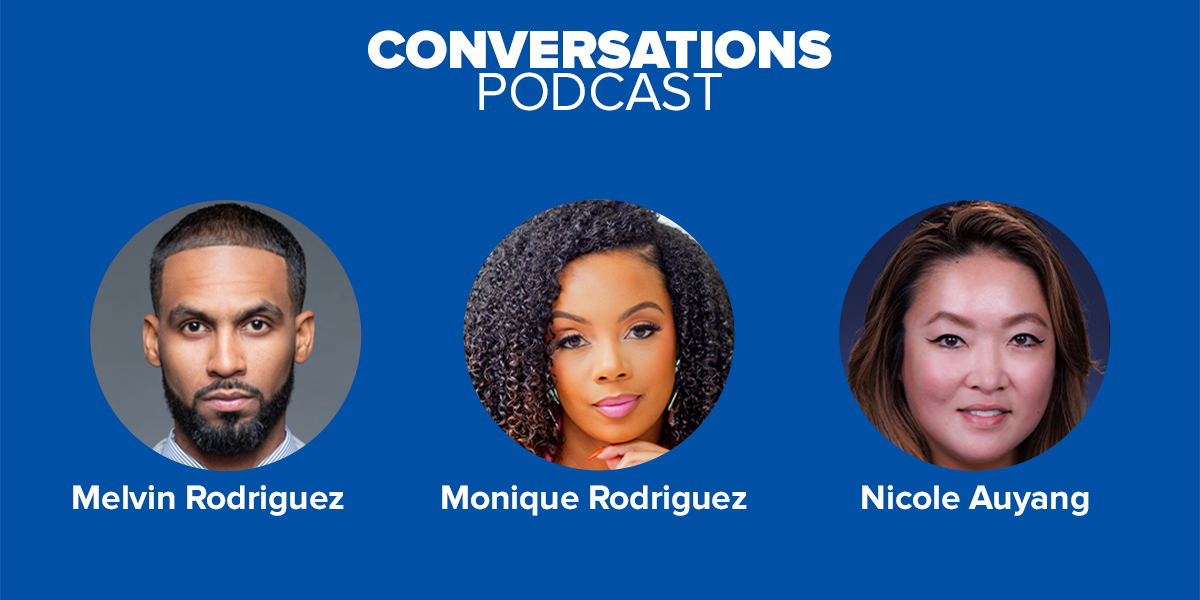-
Business Banking -
Conversations
Mark Ramadan: Disrupting Industry Giants
Listen and learn how to succeed with City National Bank and special guests on the Conversations podcast. Stay connected by subscribing on Apple, Spotify and YouTube Music.
Although Mark Ramadan’s father owned a business with his brothers, Ramadan originally envisioned a less entrepreneurial career path for himself. His first job after college was at consulting giant McKinsey and Company, but it was an unexpected idea involving ketchup that drew him into entrepreneurship.
Ramadan, along with the college roommate who became his co-founder, noticed that the condiment industry lacked options. So, they got to work in their Brown University dorm room formulating a ketchup recipe that did not use corn syrup and had lower levels of sugar and salt than the major brands.
That was in 2008. While both founders worked full-time after college, they continued to build their condiment business, known as Sir Kensington's, on the side until it fully launched in 2010.
“We tested our ketchup at tasting parties while we were in college, then worked on the packaging and marketing for two years before we launched the company,” Ramadan said.
The Sir Kensington's line of condiments garnered enough praise and sales that it was eventually acquired in 2017 by Unilever. After Sir Kensington's, Ramadan served as CEO of Hu, an award-winning, healthier chocolate and snack food company, which was recently acquired by Mondelez.
Ramadan sat down with David Cameron, City National Bank’s EVP of Personal & Business Banking, for a conversation about disrupting an industry, mission-driven businesses and life lessons for entrepreneurs.
Integrity & Creativity With a Dash of Charm
Even with the recipes they created for healthier versions of familiar condiments, Ramadan recognized that the Sir Kensington's line would need a unique marketing plan to succeed. He noted that the condiment industry was particularly hard to break into for two reasons.
First, condiments don’t fit into the impulse-buy category and most people are loyal to familiar favorites such as Heinz, Hellman’s and French’s. These brands are so ingrained in Americans' condiment purchasing habits that it's difficult to compete with them.
Mark and his partner had to come up with a clever marketing strategy to get attention away from the industry giants and onto their small brand. “We created a fanciful character [Sir Kensington] that we could tell stories about to bring people in,” Ramadan said.
The second hurdle for the brand was that condiments are often consumed in restaurants and hotels, which make up a large part of their business but are hard to break into. So they approached chefs and restaurant owners to taste their products.
“We defined our brand to have personality and charm through our packaging and tone of voice in our marketing,” Ramadan said. “We wanted to show people it would be fun to work with us.”
Mark personally sold Sir Kensington's products to New York restaurants, garnering enough industry customers to become a recognized name in the area during the earliest days of the company.
Disrupting an Established Industry
In addition to creating a healthier product, Ramadan and his team deliberately took a radically different approach from industry brands such as Heinz, making their ketchup chunky instead of smooth, selling it in glass containers rather than plastic and requiring customers to scoop it rather than squeeze it to serve.
In 2014, they wrote down the mission and values that informed the business by way of cultivating corporate culture, which Ramadan said made it easier to find people to work with them and expanded their success.
By 2016, Sir Kensington's was a best-selling natural condiment brand, but the company was still small. In 2017, the company was acquired by Unilever, a decision Ramadan said was easier to make when he learned that CEO Paul Pullman shared his vision that purpose, not just profit, is central to business success. Unilever owns other purpose-driven brands such as Seventh Generation and Ben & Jerry’s Ice Cream.
Why Core Values Are Essential to Success
While profit and loss sheets are the outputs that prove the success of a business, the inputs that go into the business are what generates that success, Ramadan said.
The combination of a highly motivated team and a sensible strategic plan are essential inputs into any business. The motivation for Ramadan and his team members in every business comes from a clearly established mission and articulated values.
“In many companies, values are things that live on a wall,” Ramadan said. “That’s better than not having them at all, but it’s kind of like not having them. If the first and last time you hear about a company’s values is at onboarding, then that’s a missed opportunity to do more with them.”
Lessons for Aspiring Leaders
Ramadan's success in selling two brands to major companies has taught him some lessons about leadership.
He spent two years as founder and CEO of Sir Kensington's, working to integrate the brand he started with Unilever. Ramadan then found himself in a new situation when he joined an existing company, Hu, as CEO in 2019.
He knew that he couldn't take the same founder-style approach he took at his previous company. So he started with a month of listening to board members, founders, employees, investors and major customers to learn about their experience with Hu. Then he worked with the entire team of employees to write their mission and values.
“I believe in the IKEA effect: if people collaborate, they’re more likely to buy into a plan, versus when they’re handed a plan,” Ramadan said.
Ramadan worked with a coach to become a better CEO, and learned the importance of emotional intelligence. He believes three of the qualities that contribute to a leader’s success are to have humility, be self-aware about whether you make people feel afraid or angry instead of uplifted, and to consistently give and get feedback.
For aspiring entrepreneurs, Ramadan recommends jumping in to start creating a business as soon as possible. In addition, he believes that every entrepreneur and every business can benefit from establishing their mission and values early.
You can catch the rest of the conversation between Mark Ramadan and David Cameron by listening to the full podcast above.
This article is for general information and education only. It is provided as a courtesy to the clients and friends of City National Bank (City National). City National does not warrant that it is accurate or complete. Opinions expressed and estimates or projections given are those of the authors or persons quoted as of the date of the article with no obligation to update or notify of inaccuracy or change. This article may not be reproduced, distributed or further published by any person without the written consent of City National. Please cite source when quoting.
This podcast is for general information and education only. It is provided as a courtesy to the clients and friends of City National Bank (City National). City National does not warrant that it is accurate or complete. Opinions expressed and estimates given are those of the speakers as of the date of the podcast with no obligation to update or notify of inaccuracy or change. This podcast may not be reproduced or distributed by any person without the written consent of City National. Please cite source when quoting.

